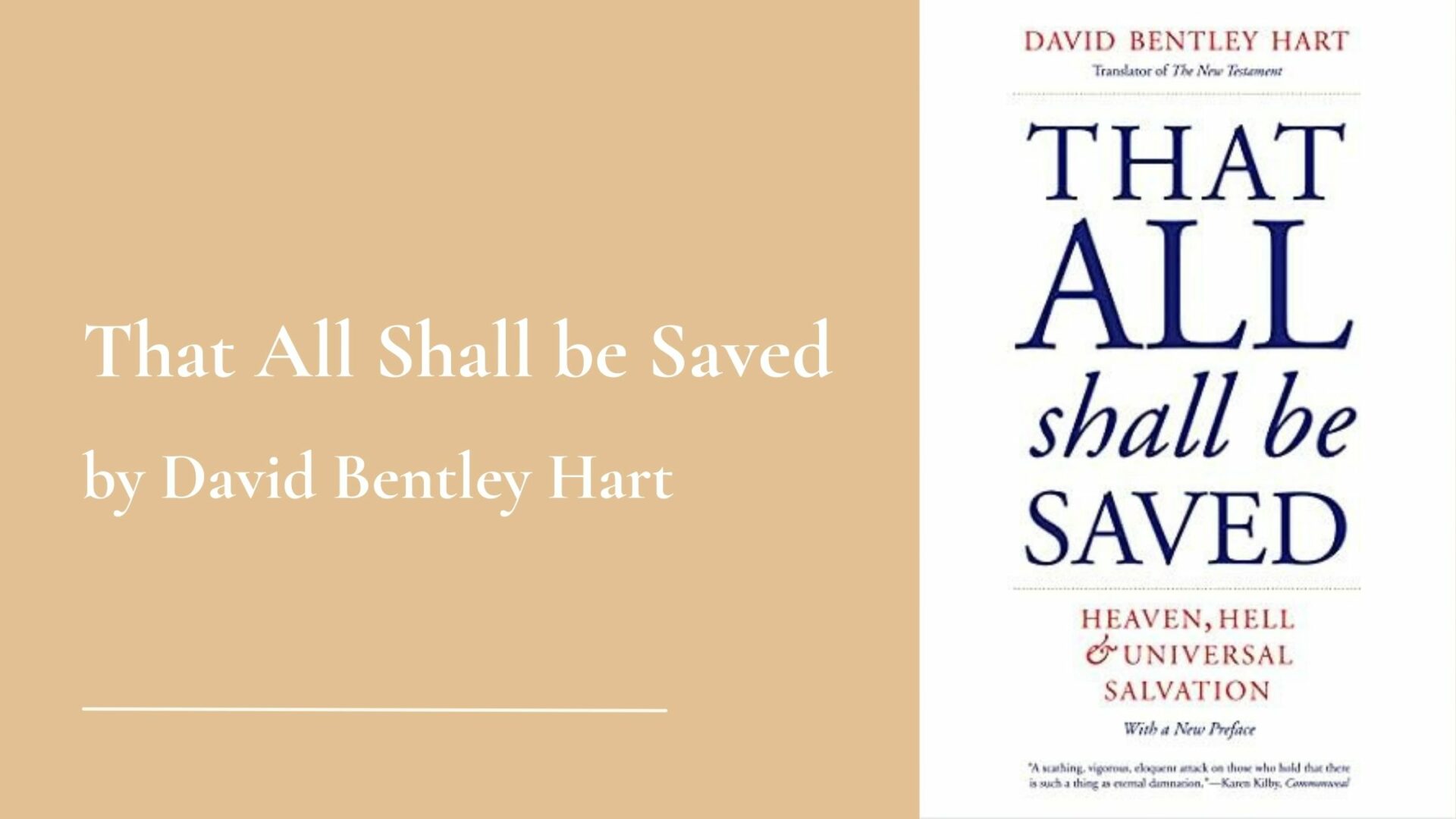David Bentley Hart (born 1965) is an American writer, philosopher, and Orthodox theologian whose work encompasses a wide range of subjects and genres. A prolific essayist, he has written on topics as diverse as art, literature, religion, philosophy, film, baseball, and politics. He is also an author of fiction. As a religious scholar, his work engages heavily with classical, medieval and continental European philosophy, philosophical and systematic theology, patristic texts, and South and East Asian culture, religion, literature, philosophy and metaphysics. His translation of the New Testament was published in 2017. ( Wikipedia)
That All Shall be Saved, Yale University Press, Sep 24, 2019
I was recommended this book by Mark Vernon, a writer, psychotherapist and former Anglican priest who recently published his own book Dante’s Divine Comedy: a Guide for the Spiritual Journey. Mark Vernon was in a dialogue with Rupert Sheldrake about his book and he referred to David Bentley Hart. This is somewhat ironic, as Bentley Hart judges Dante (or at least Dante’s version of heaven and hell) quite harshly: “By The Inferno’s end the only creator in the poem for whom one feels any spontaneous natural admiration is Dante; for Dante’s God, if one is more or less emotionally intact, one can feel only a kind of remote, vacuous loathing.” And he is equally scathing about Augustine of Hippo – “a towering genius whose inability to read Greek and consequent reliance on defective Latin translations turned out to be the single most tragically consequential case of linguistic incompetence in Christian history.” Although he doesn’t refer to him by name, he is also dismissive of Saint Jerome, who was responsible for the poorly translated Greek that led Augustine astray.
The book is an attack on the idea of hell—as espoused principally by the western church, but with roots going back to Tertullian (c 155 – c 240)—that one of the delights of the saved will be to observe from their heavenly box seat the eternal torments, vividly described, of the damned. Martin Luther (1483-1546) insisted that “the saved will rejoice to see their loved ones roasting in hell”. And along the way, Thomas Aquinas agreed that “the torments of the damned will increase the beatitude of the redeemed (as any trace of pity would darken the joys of heaven)”.
Bentley Hart describes how as a boy he listened to a sermon by a very High Anglican priest on the horrors of hell which achieved exactly the opposite effect to that intended. He found it unbelievable that a loving God would condemn anyone to eternal torment and dismissed it as “an inept attempt to scare me”. This accords with my own view, although I took much longer to reach it. My boyhood Catholic upbringing proved a lot harder to shake off than Bentley Hart’s milque-toast Episcopalianism; I did not really escape from it until my 50’s. Bentley Hart is also possibly much more sceptical, possibly cynical (in the best sense), than I.
His quarrel with the idea of hell is multi-faceted, but principally is simply a matter of logic and natural justice. Why would a loving creator god create creatures which he / she / it (oh no, what pronouns does god require?!) then proposes to subject to eternal, everlasting torture because his / her / its creations did not come up to snuff? And if that is what god has in fact done, why would we waste any time at all on him / her / it? As Bentley Hart points out several times, we are simply creatures with an infinitesimal span (as compared to the lifespan of the cosmos, never mind eternity) – how is it possible for us to commit so much evil in such a blink of an eye, that we should be punished for ever in an awful torture chamber? And, why does the rest of creation apparently get off scot-free? Do particularly unpleasant cats merit eternal damnation? Or amoebae?
Bentley Hart is greatly exercised by the poor and limited quality of many translations of the Old and New Testaments. Before he became, and indeed in part, why he became a member of the Orthodox Church, he was a classical scholar. He was genuinely confused by the mismatch between his close readings of the original Greek, and the many translations made of it. There is, for example, no single word for Hell in the Bible. There are many hellish places referred to, such as Gehenna, which get translated into a single word, but Gehenna was actually a valley or gorge near Jerusalem where dead animals and rubbish were dumped, and where fires burned more or less continually. In referring to it, Jesus was not saying “there is a place (like Gehenna) which my Father will send you to, forever, if you do not do what we say” but rather that those who turn away from truth, from love, from surrender, are already actually living in a place like Gehenna, from which they can walk away (through metanoia and kenosis), whenever they freely choose. It is the denial of that possibility to the “damned” by Dante, and many church theologians, that particularly incenses Bentley Hart.
Because of these concerns, he has also made a fresh translation of the New Testament , which I recommend, along with this excellent book.
Bentley Hart’s prose is bracing, as I think can be seen from the foregoing quotations. Readers of a sensitive disposition may need a trigger warning – he is not for the faint hearted or those whose beliefs are both precious and fragile. Although I would not describe him as a bull in a china shop, he does ride roughshod over anything and anyone that he finds intellectually or spiritually deluded. He is arrogant, fiercely intelligent, and uncompromising. I found him a delight to read, as well as at times spiritually and intellectually challenging. He made me think.






2 thoughts on “That All Shall be Saved, by David Bentley Hart”
What an invigorating and engaging review. Thanks so much, David – you have made me want to read DBH’s book
– Jim
A warning: DBH is a philosopher, and there is some very sophisticated argument in the book, especially in “Meditation One.” It’s a pleasure to read because the prose is beautiful, but it’s also very subtle, so one has to pay attention.